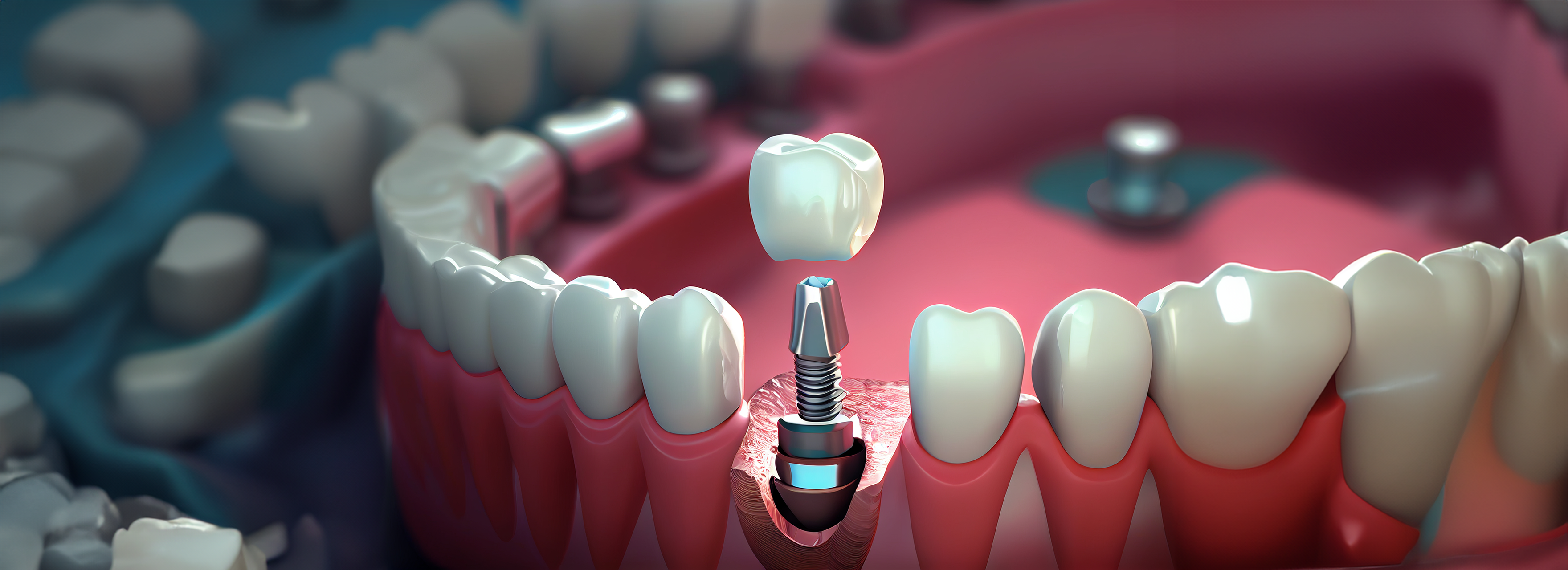Losing teeth can significantly impact both oral function and self-confidence. Fortunately, modern dentistry offers two primary solutions for replacing missing teeth: dentures and dental implants. Understanding the benefits, drawbacks, and suitability of each option is vital for making the best choice to restore your smile and oral health.
Dentures: Traditional Yet Effective
Dentures have been a longstanding solution for replacing missing teeth, available in two types: complete (full) and partial. They consist of prosthetic teeth set into an acrylic base resembling gum tissue.
Benefits of Dentures:
- Affordability: Dentures are generally more budget-friendly than dental implants, making them accessible to a wider range of individuals.
- Non-invasive Procedure: Unlike dental implants, dentures don’t require surgical placement, which can be preferable for some patients.
- Adaptability: They can be adjusted and modified over time to fit changes in the mouth’s structure.
Considerations:
- Maintenance: Regular cleaning and care are essential to prevent issues like gum irritation and bacterial buildup.
- Adaptation Period: Some patients experience initial discomfort with speech and eating, needing time to adjust.
- Bone Loss: Dentures don’t prevent bone loss in the jaw, which can lead to changes in facial structure over time.
Dental Implants: Modern Innovation for Long-term Stability
Dental implants involve the surgical placement of titanium posts into the jawbone, serving as artificial tooth roots. These implants support individual crowns, bridges, or even full dentures.
Benefits of Dental Implants:
- Durability: Dental implants offer long-term stability and can last a lifetime with proper care.
- Natural Feel and Function: They closely resemble natural teeth in terms of appearance and function.
- Preservation of Jawbone: Implants stimulate the jawbone, preventing bone loss and maintaining facial structure.
Considerations:
- Cost: Dental implants tend to have a higher initial cost compared to dentures, which might not be feasible for everyone.
- Surgical Procedure: The implant process involves surgery, which may not be suitable for patients with certain health conditions.
- Healing Time: From implant placement to receiving the final restoration, the process can take several months, requiring multiple appointments.
Making an Informed Decision
Several factors should influence your decision-making process:
1. Oral Health Status: Consult with your dentist to evaluate your overall oral health and determine the best-suited option.
2. Lifestyle and Preference: Consider your daily routine, comfort, and preferences regarding maintenance and aesthetics.
3. Long-term Goals: Factor in the long-term benefits and potential complications to align with your future dental health objectives.
4. Financial Considerations: Balance the initial cost, potential long-term expenses, and insurance coverage to make a financially feasible choice.
Conclusion:
Both dentures and dental implants offer effective solutions for replacing missing teeth. However, the choice between the two depends on individual circumstances, including oral health, lifestyle, budget, and long-term goals.
Consulting with a qualified dentist or prosthodontist is crucial in determining the most suitable option for you. By considering these factors and seeking professional guidance, you can confidently choose the solution that best fits your needs, ensuring improved oral health and quality of life.






